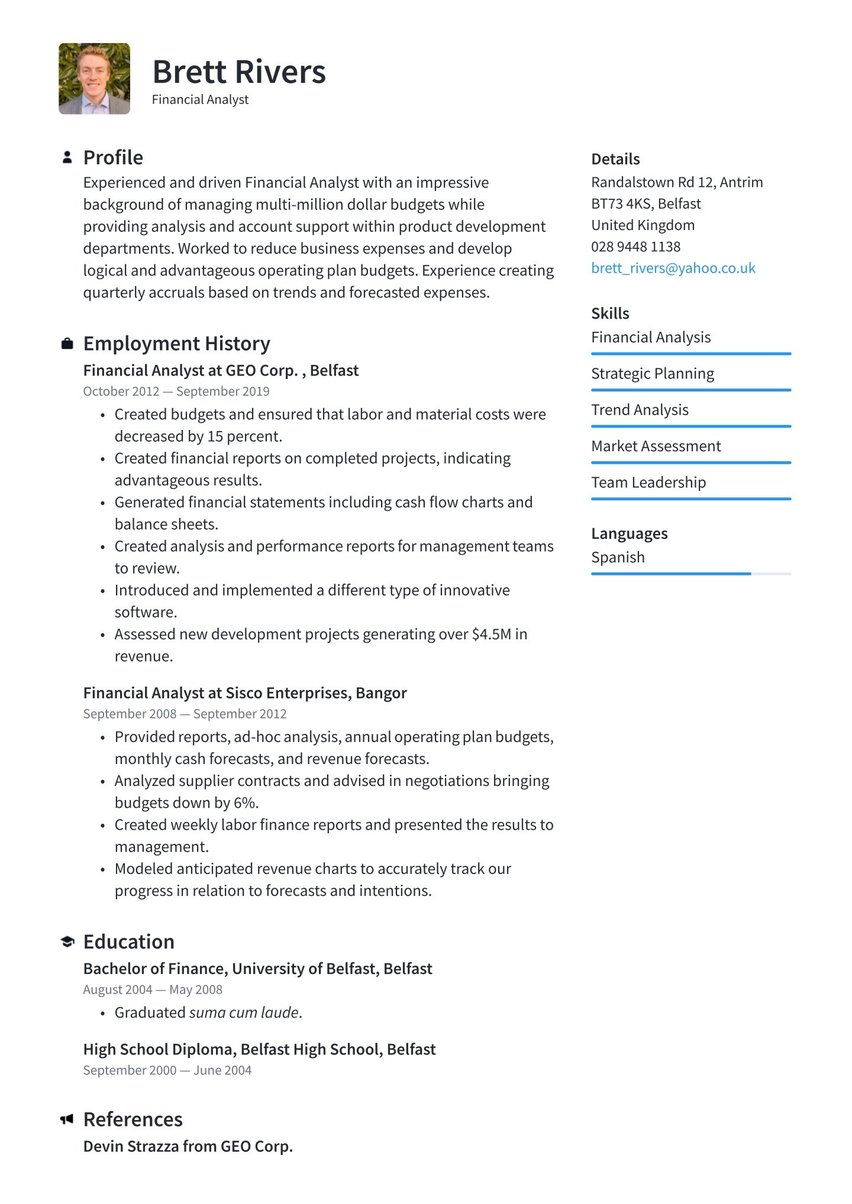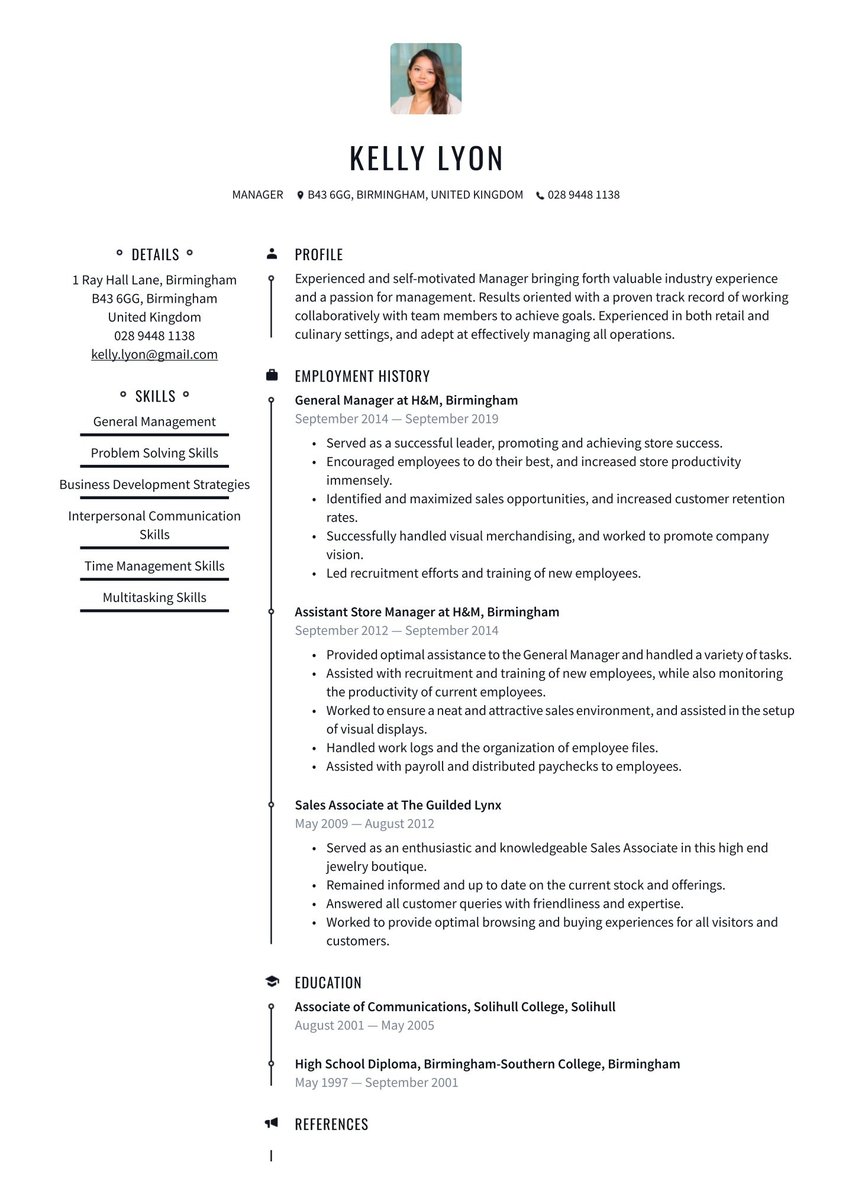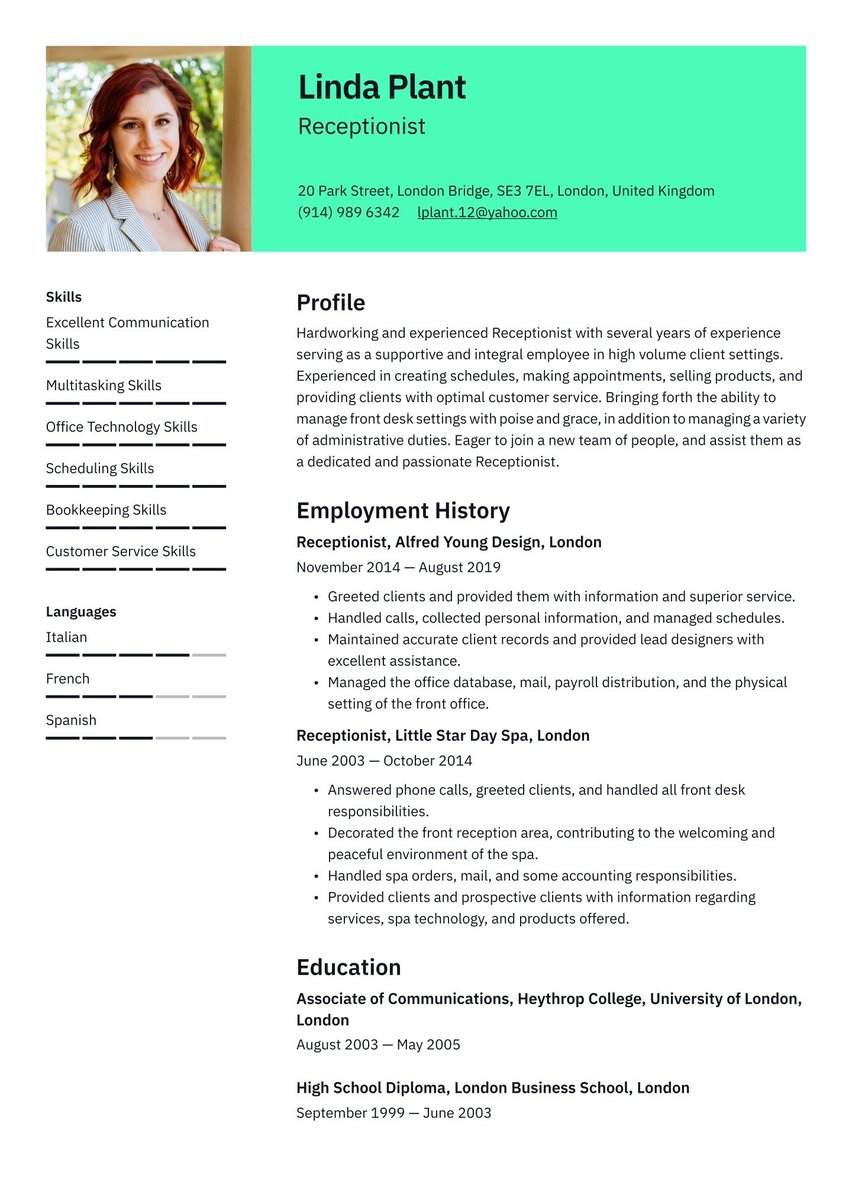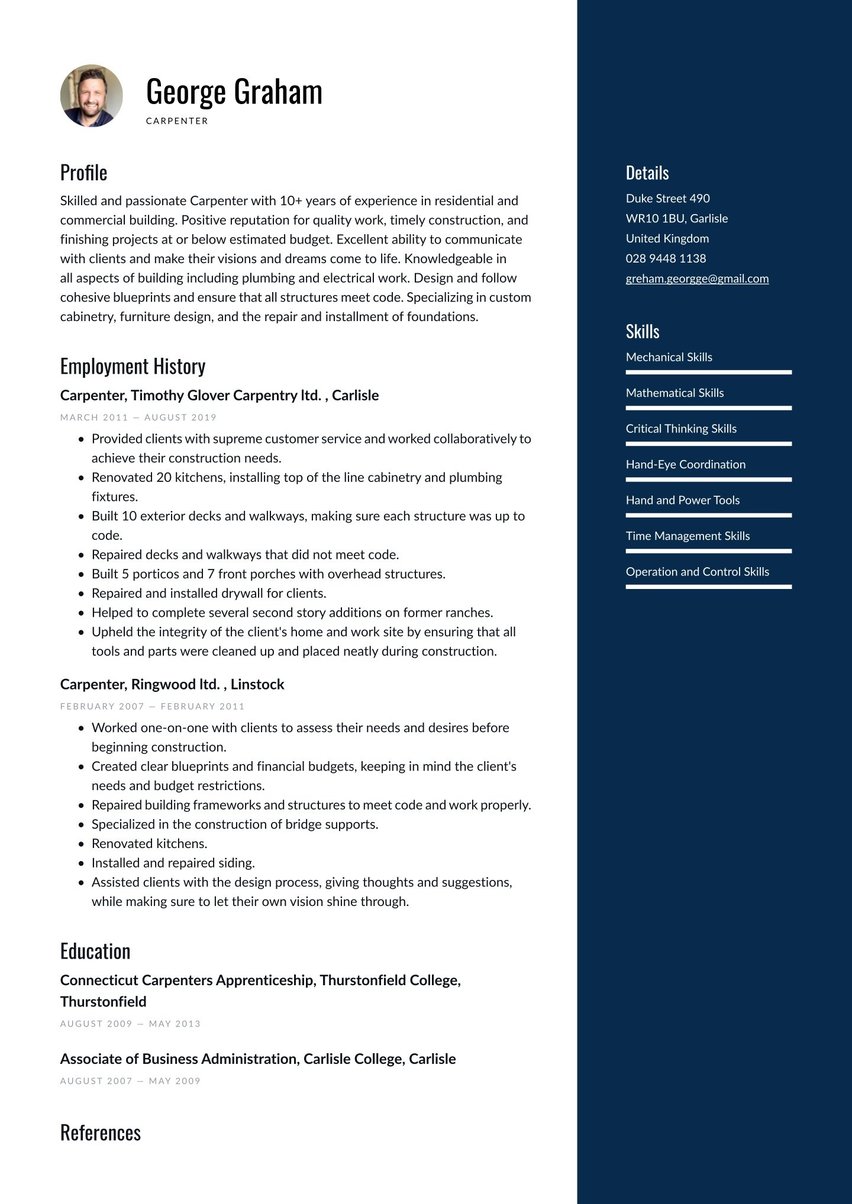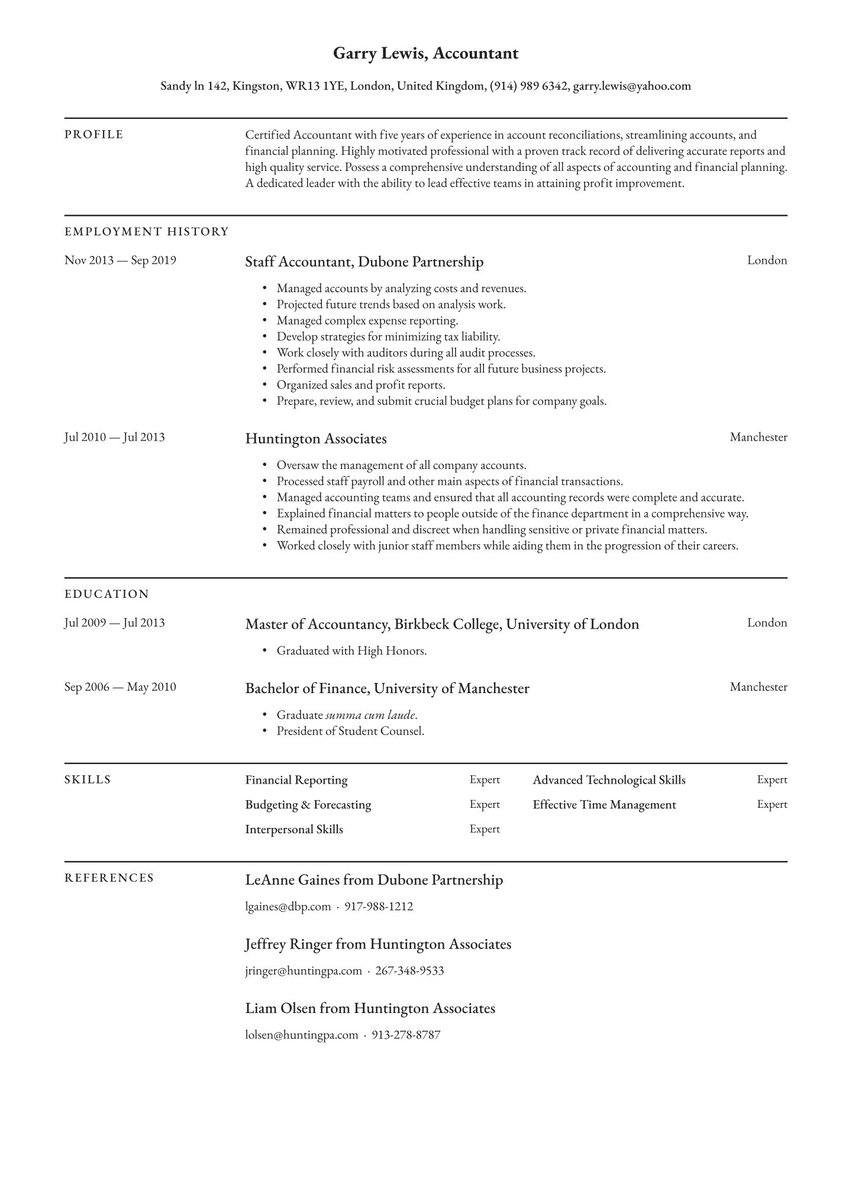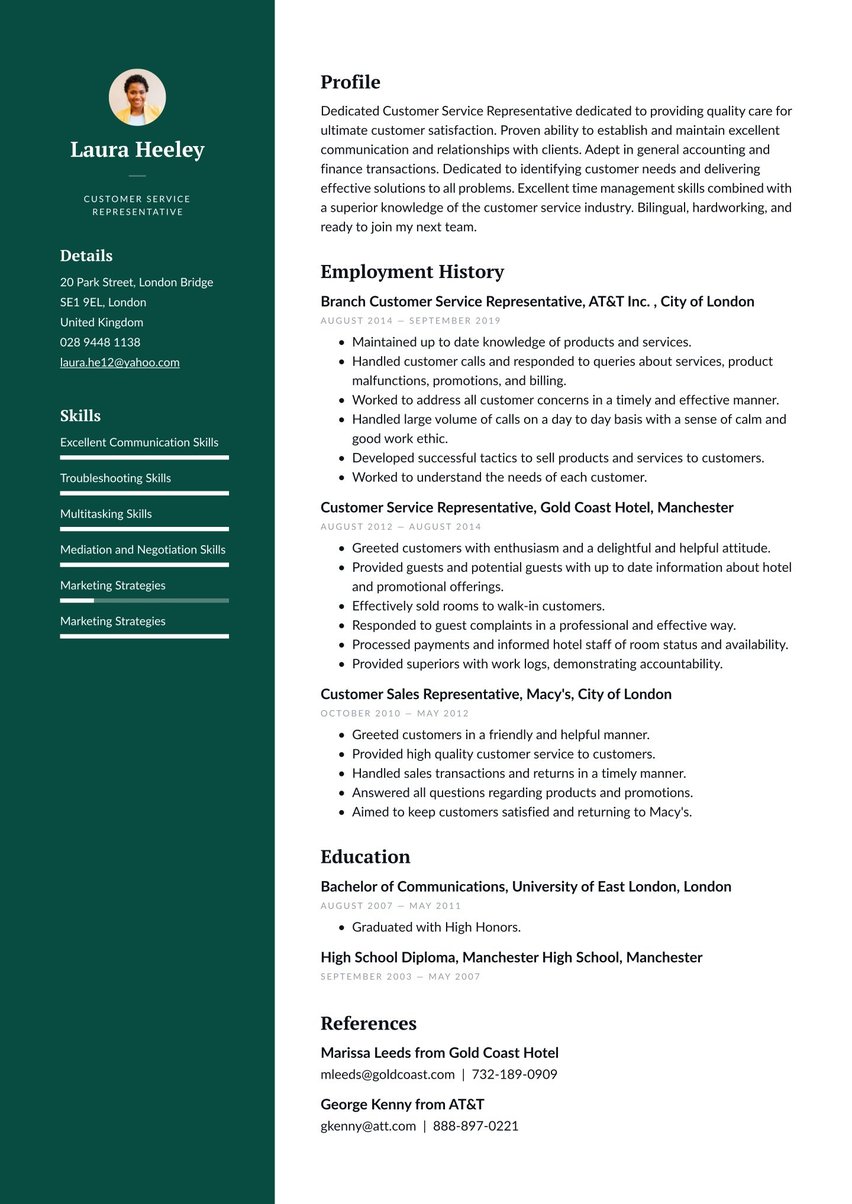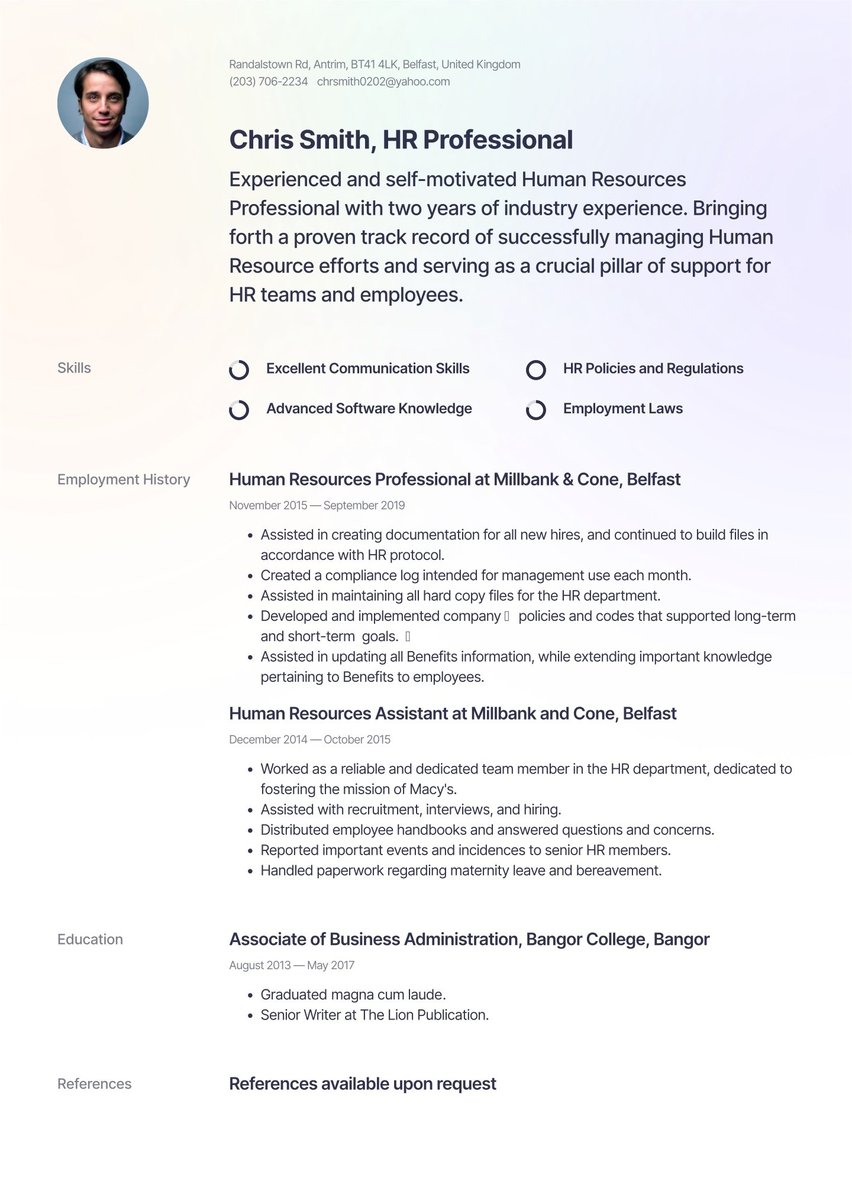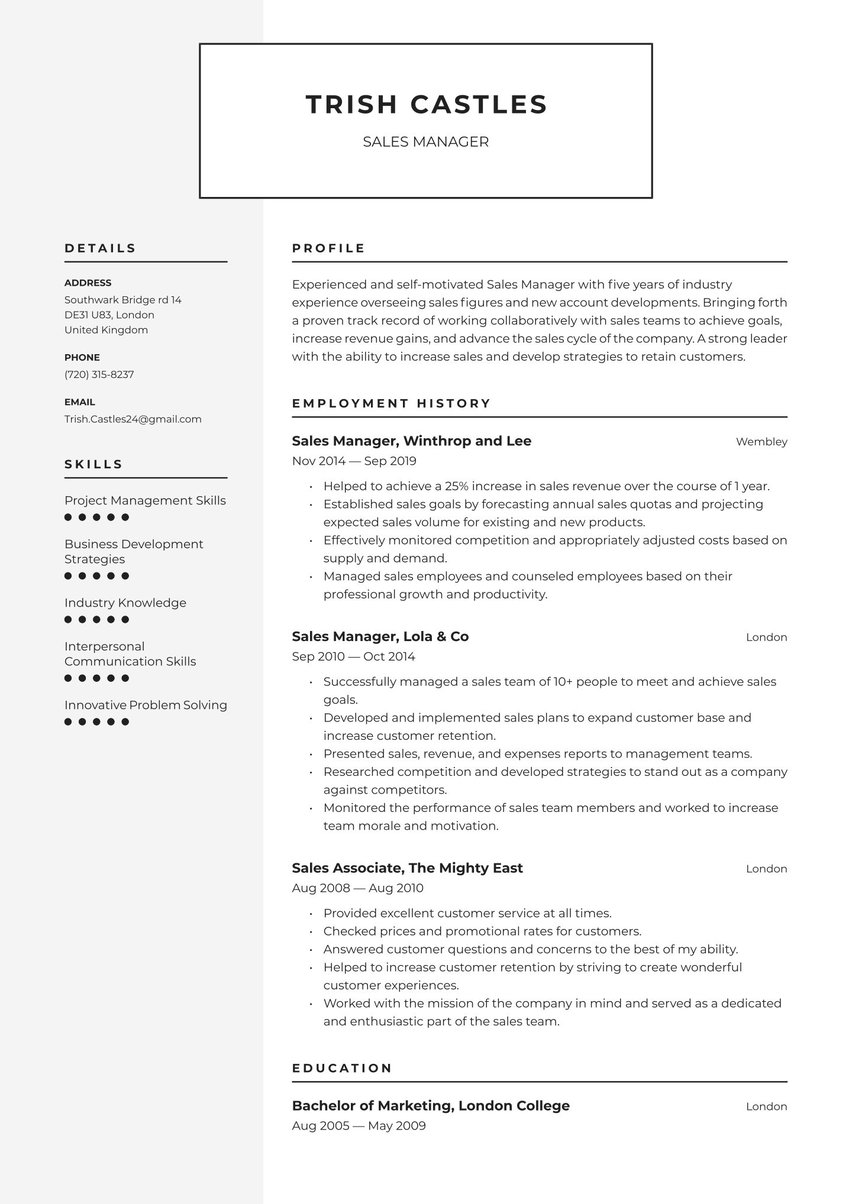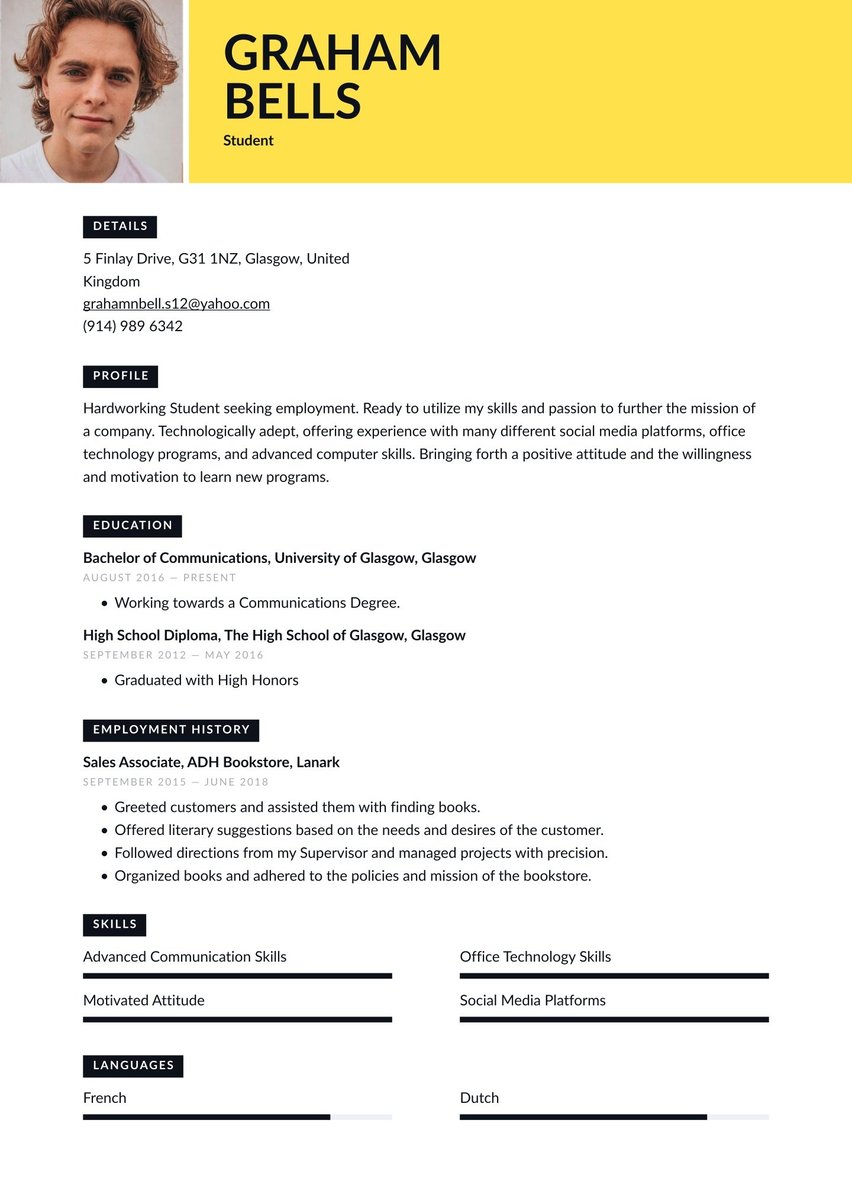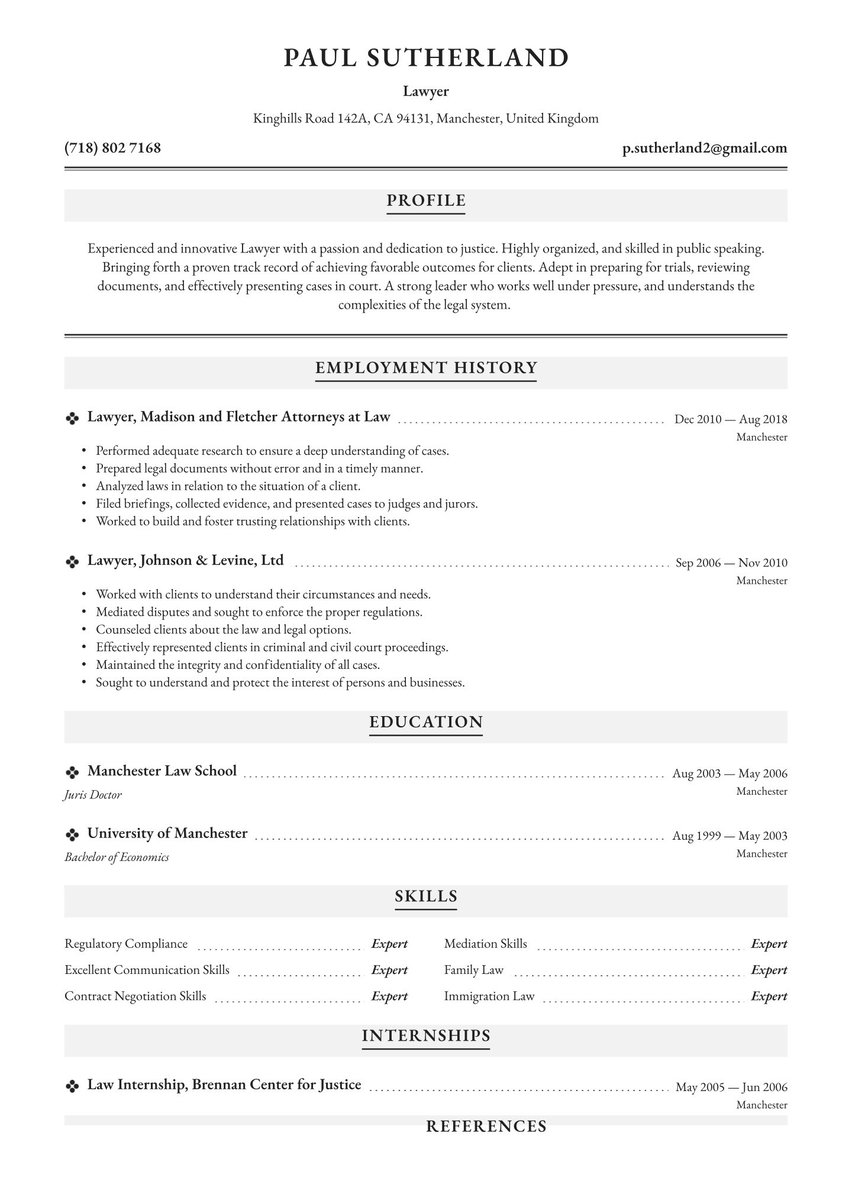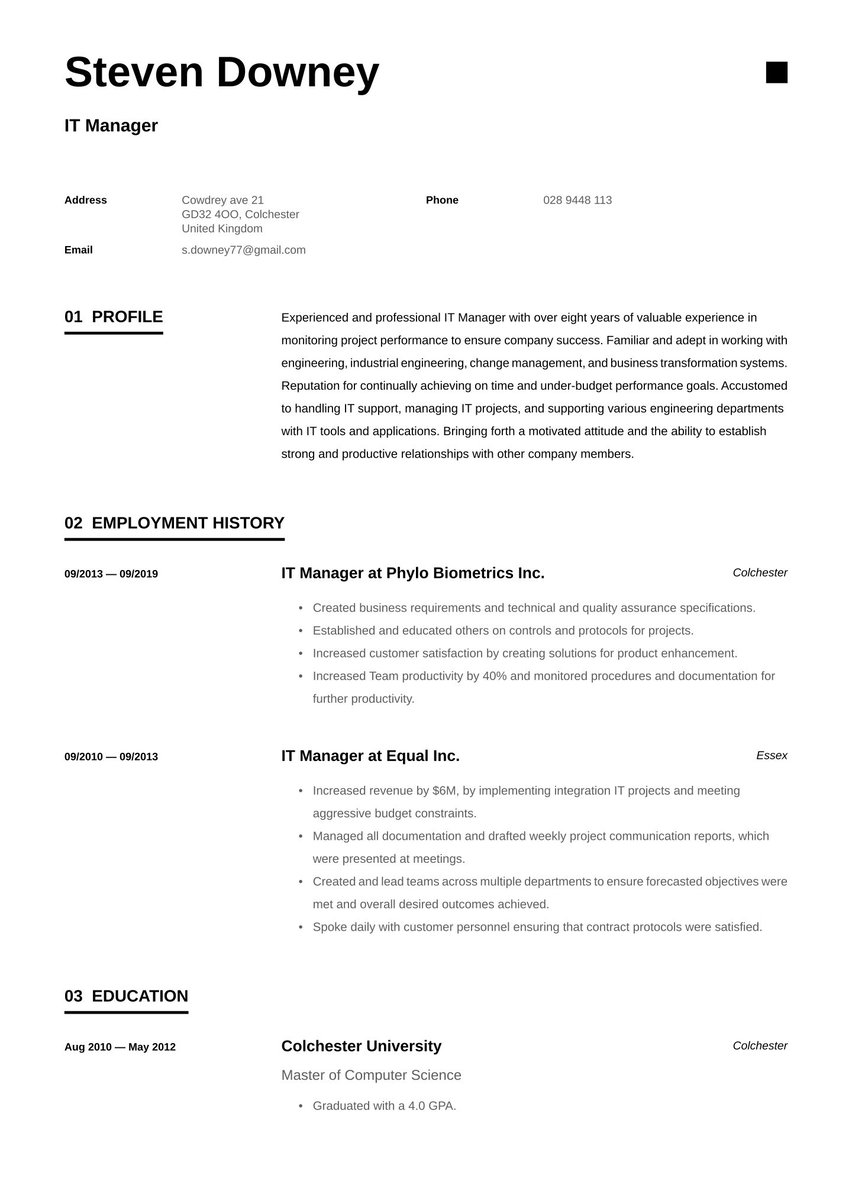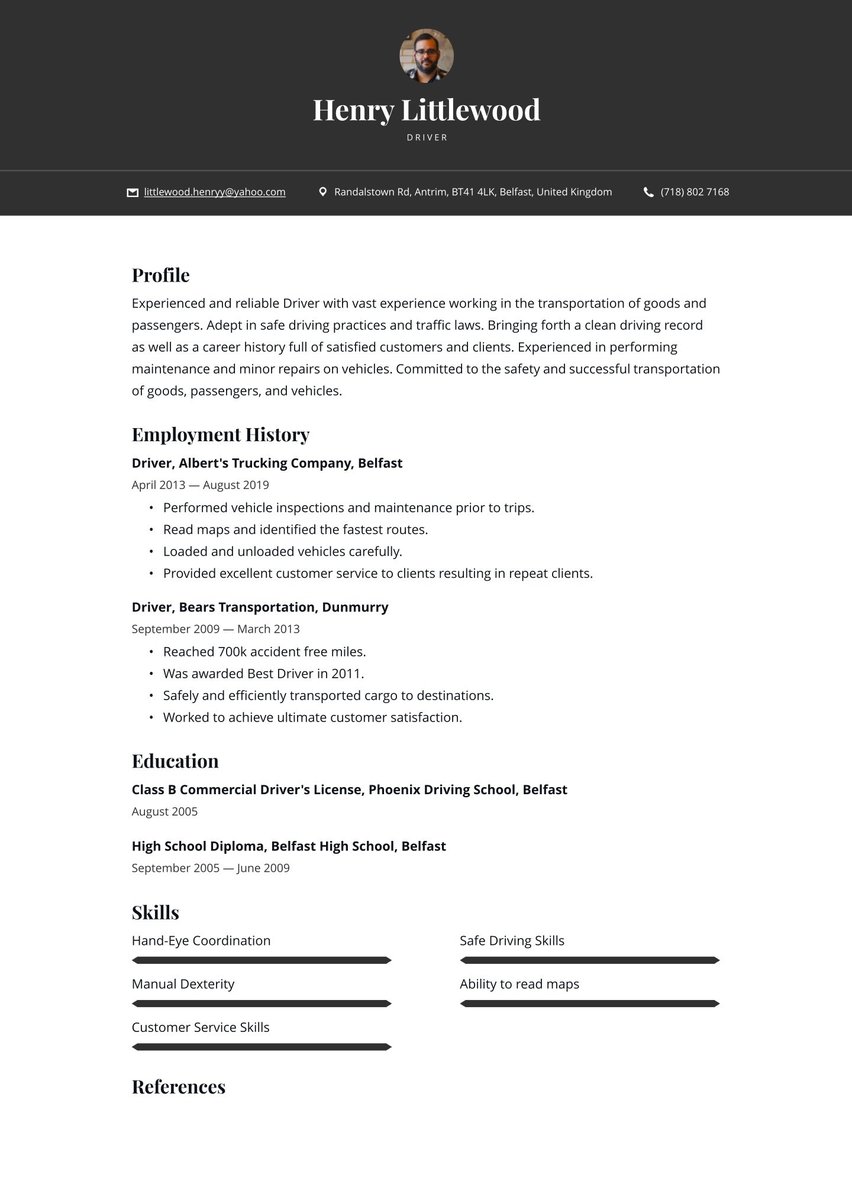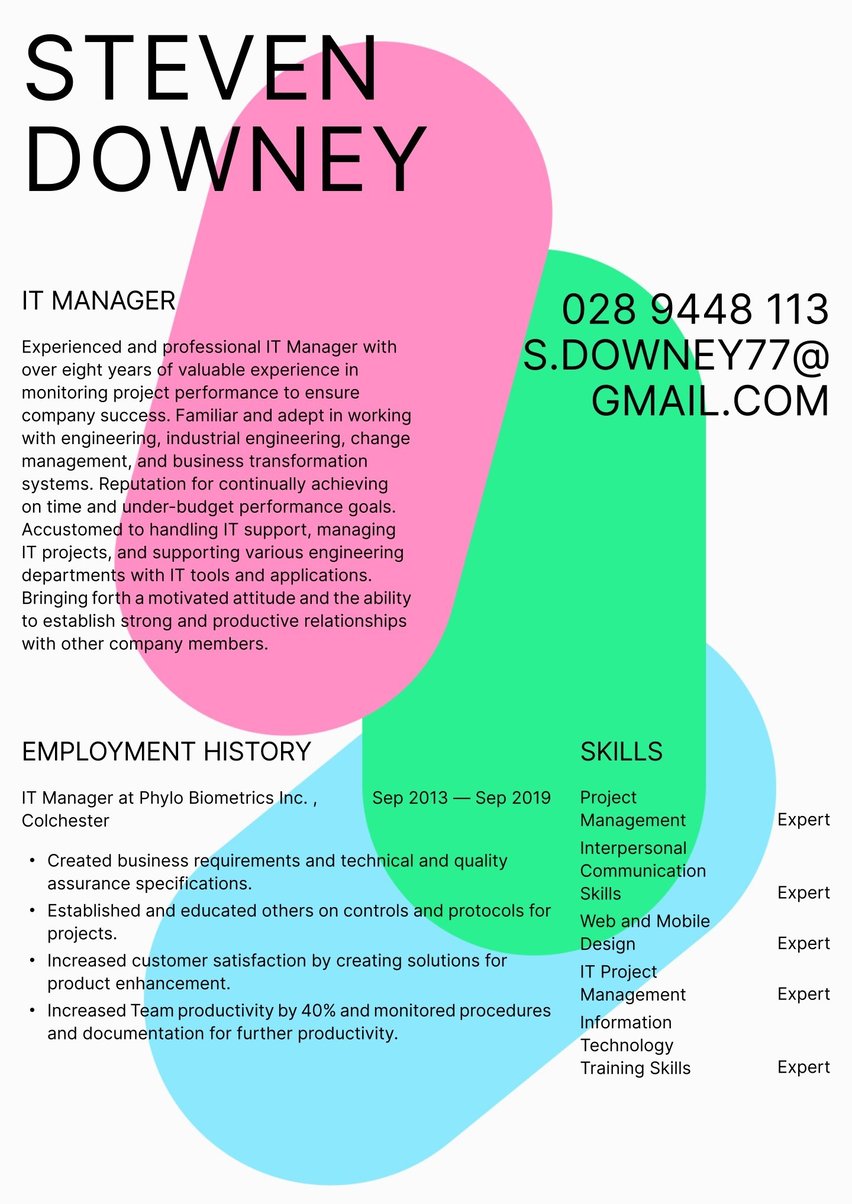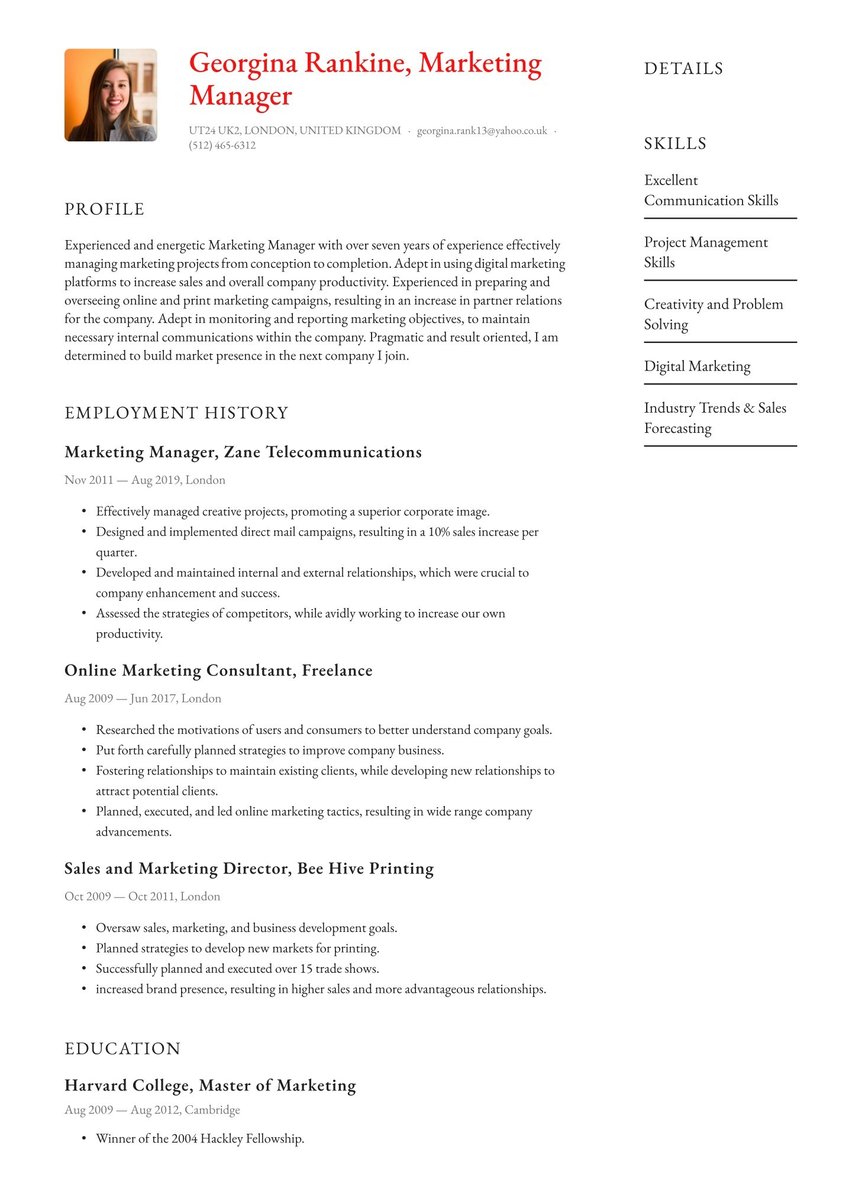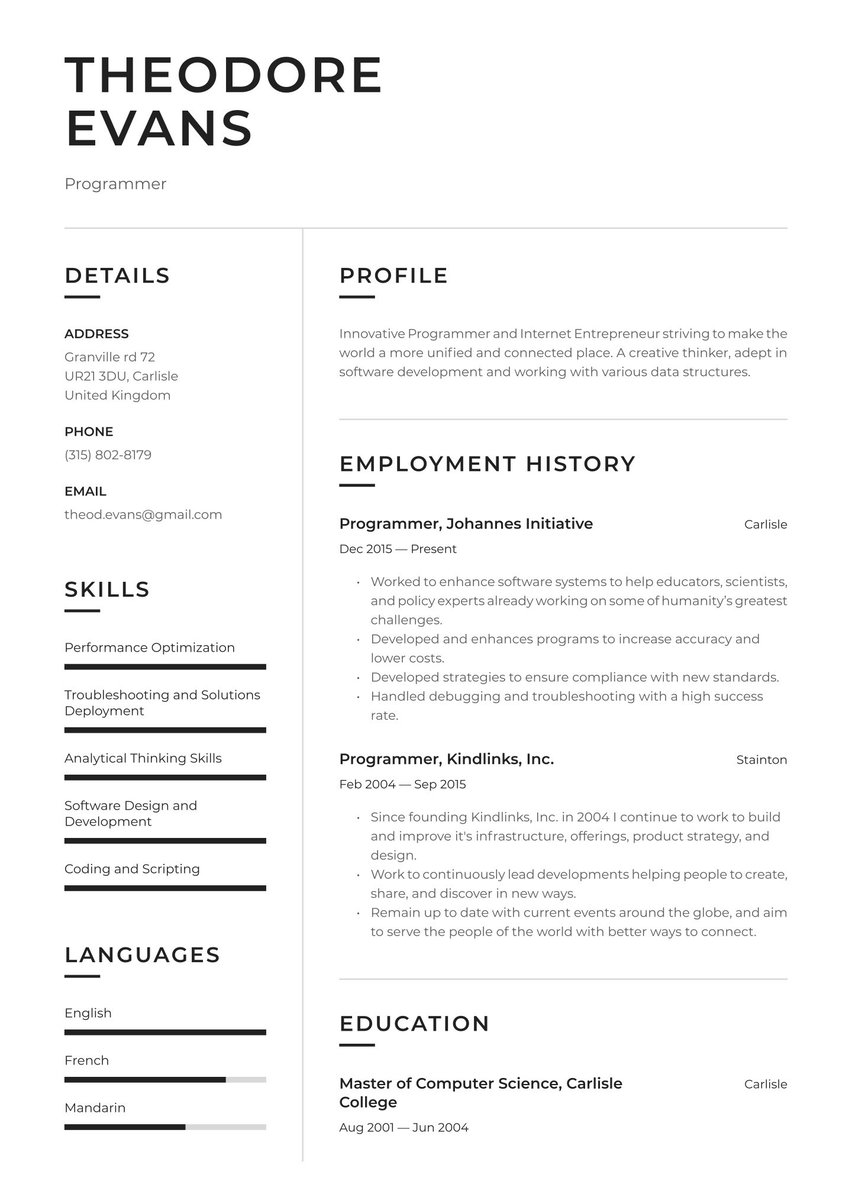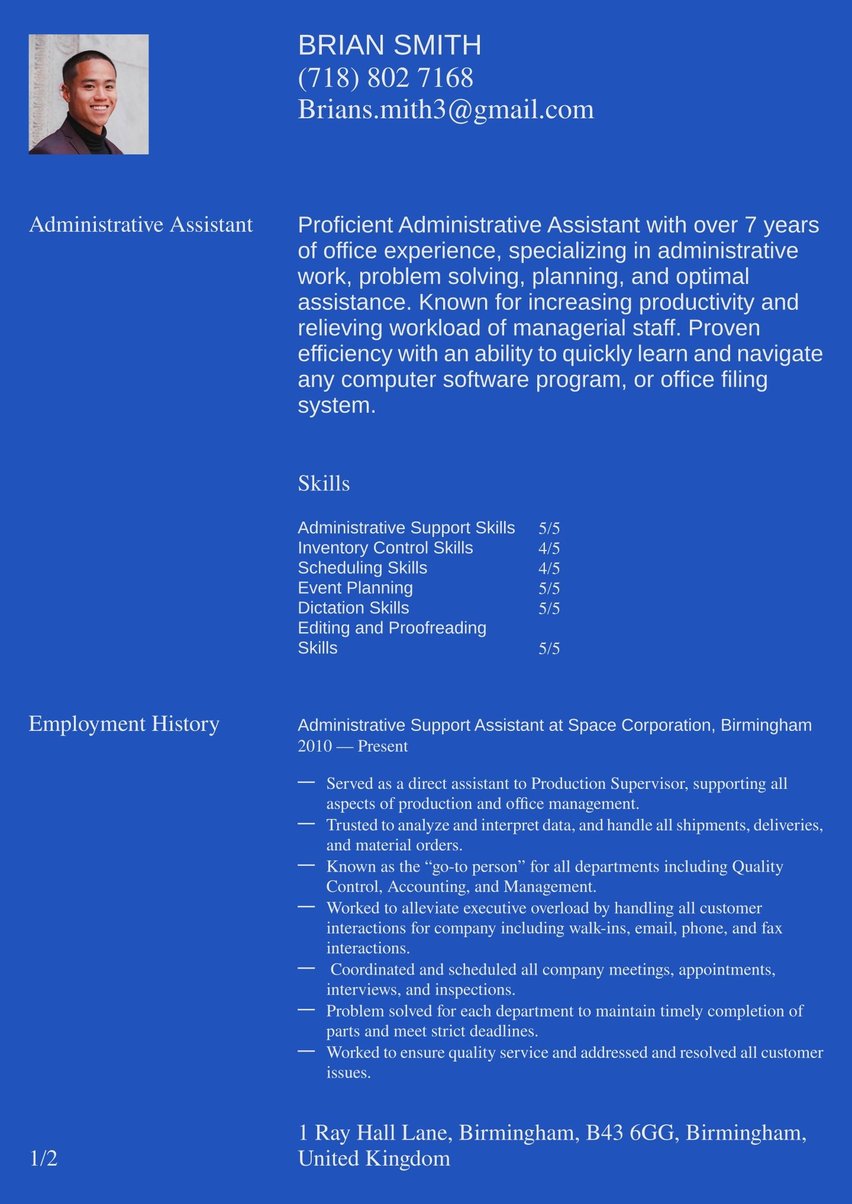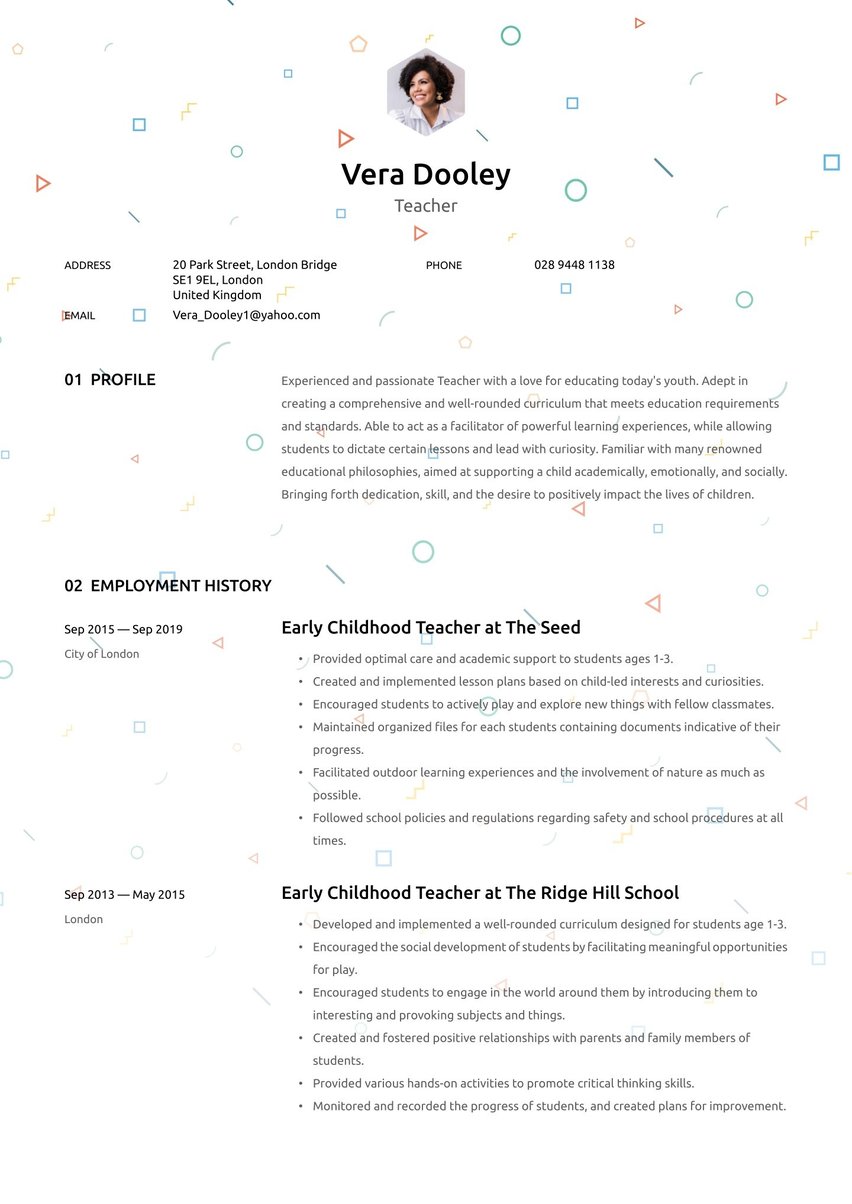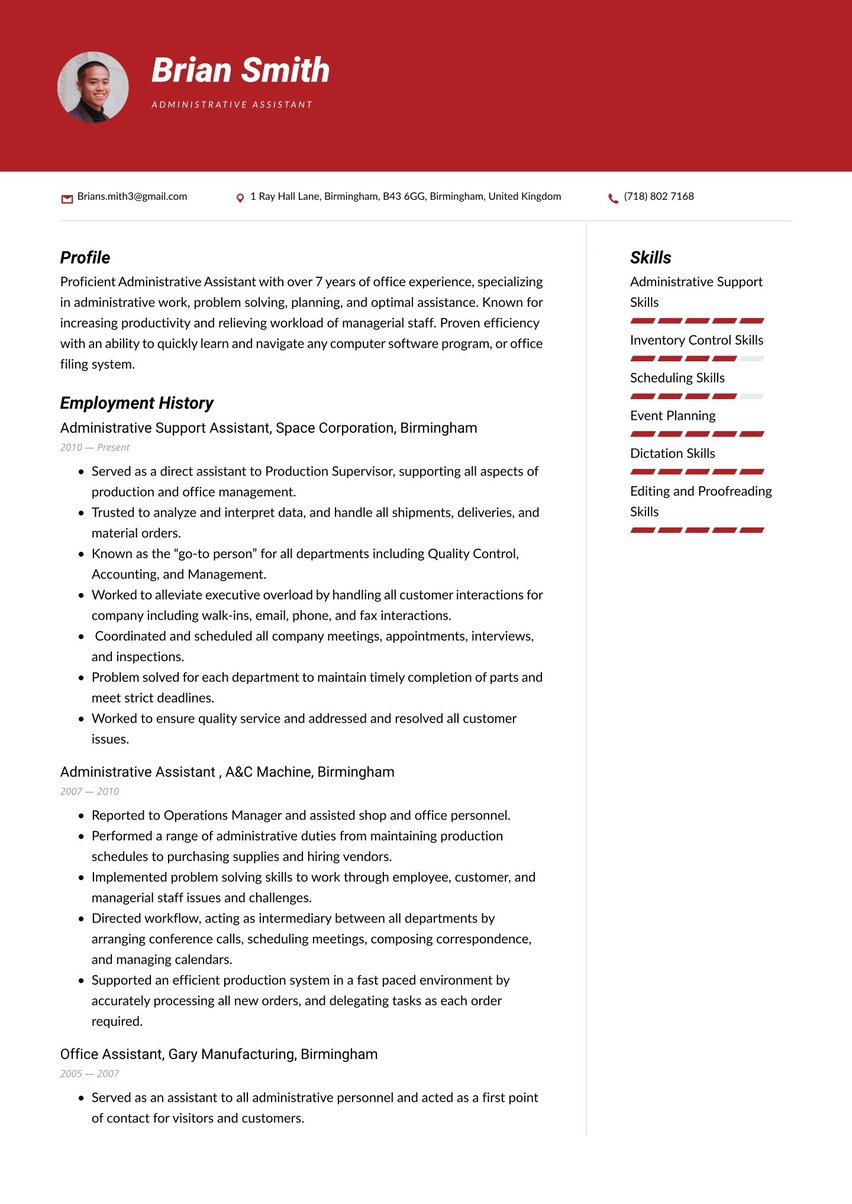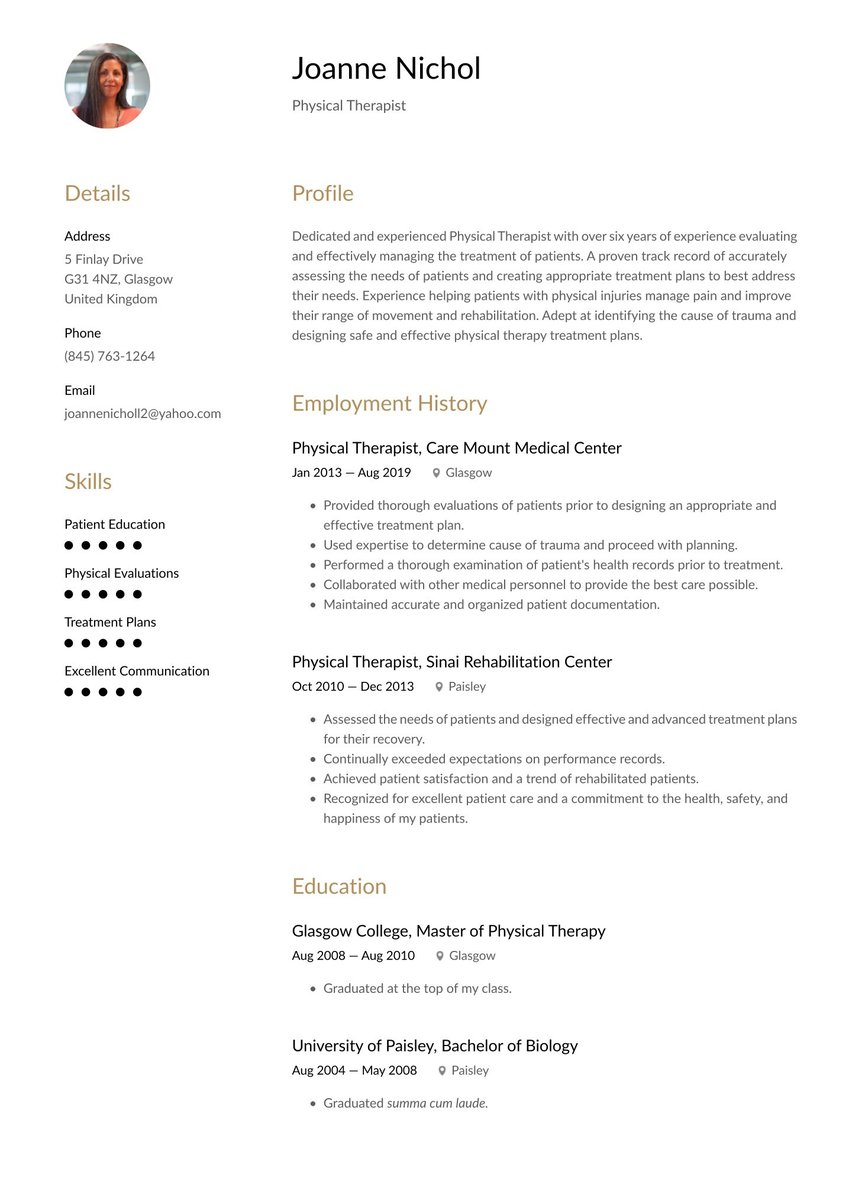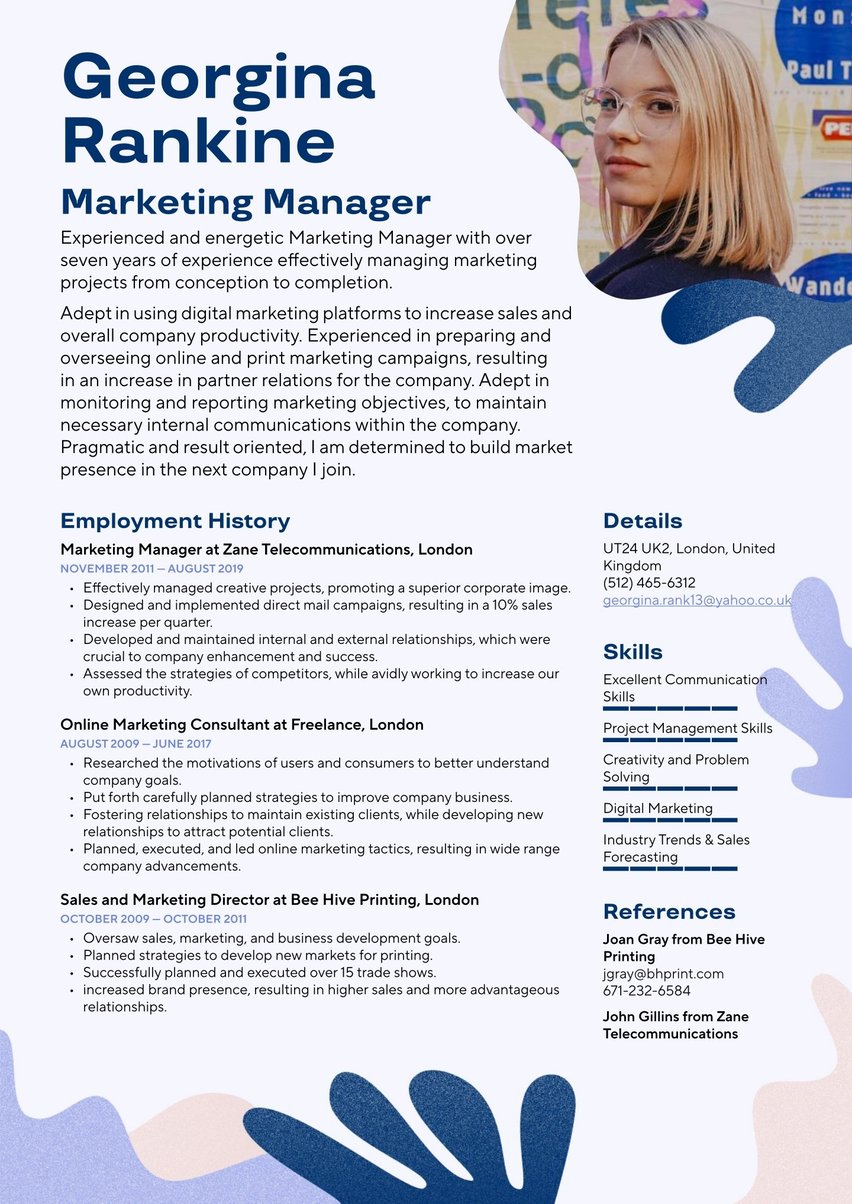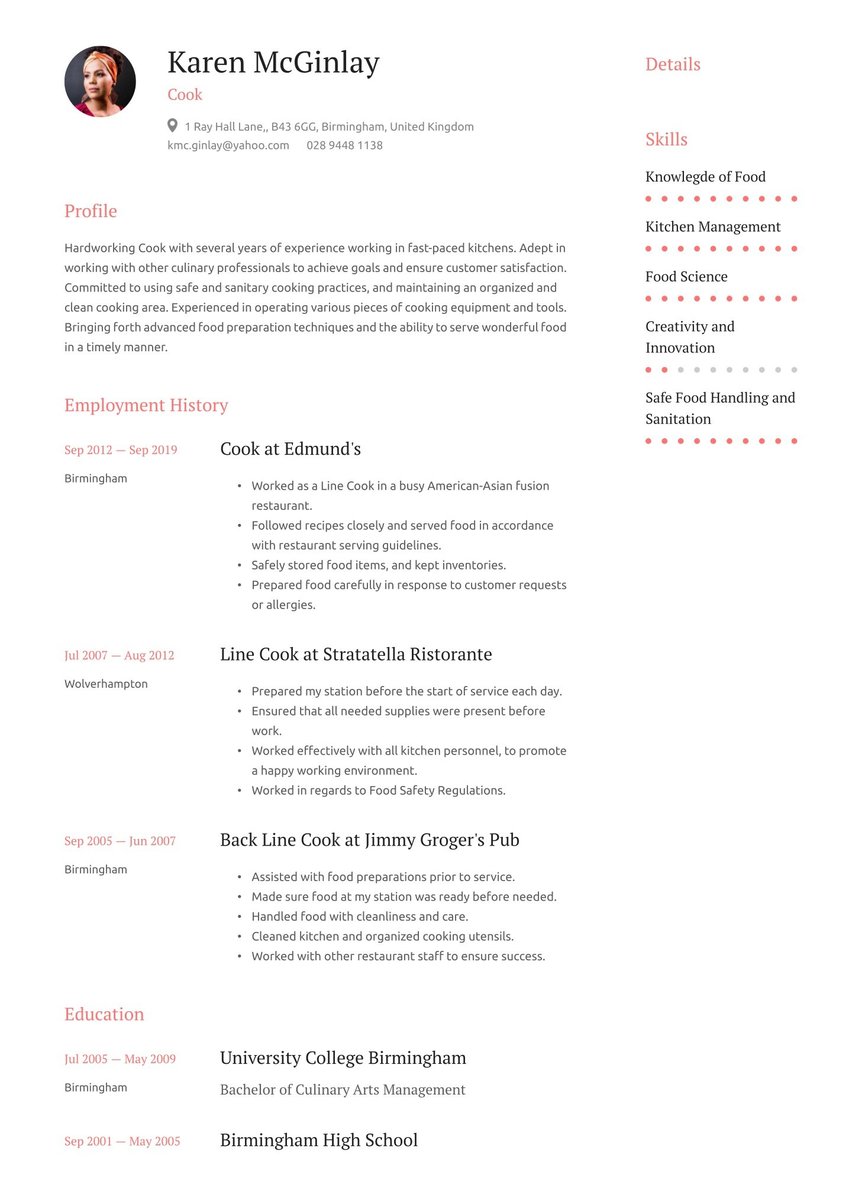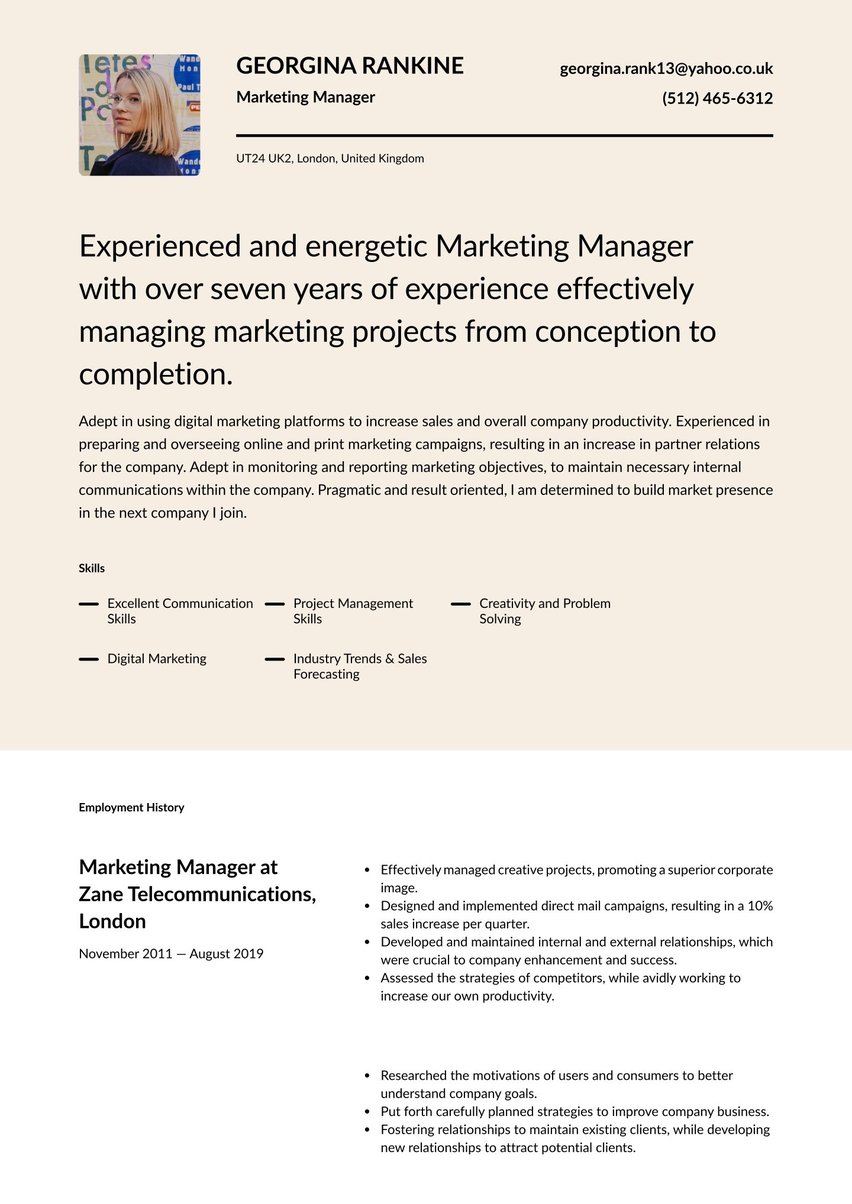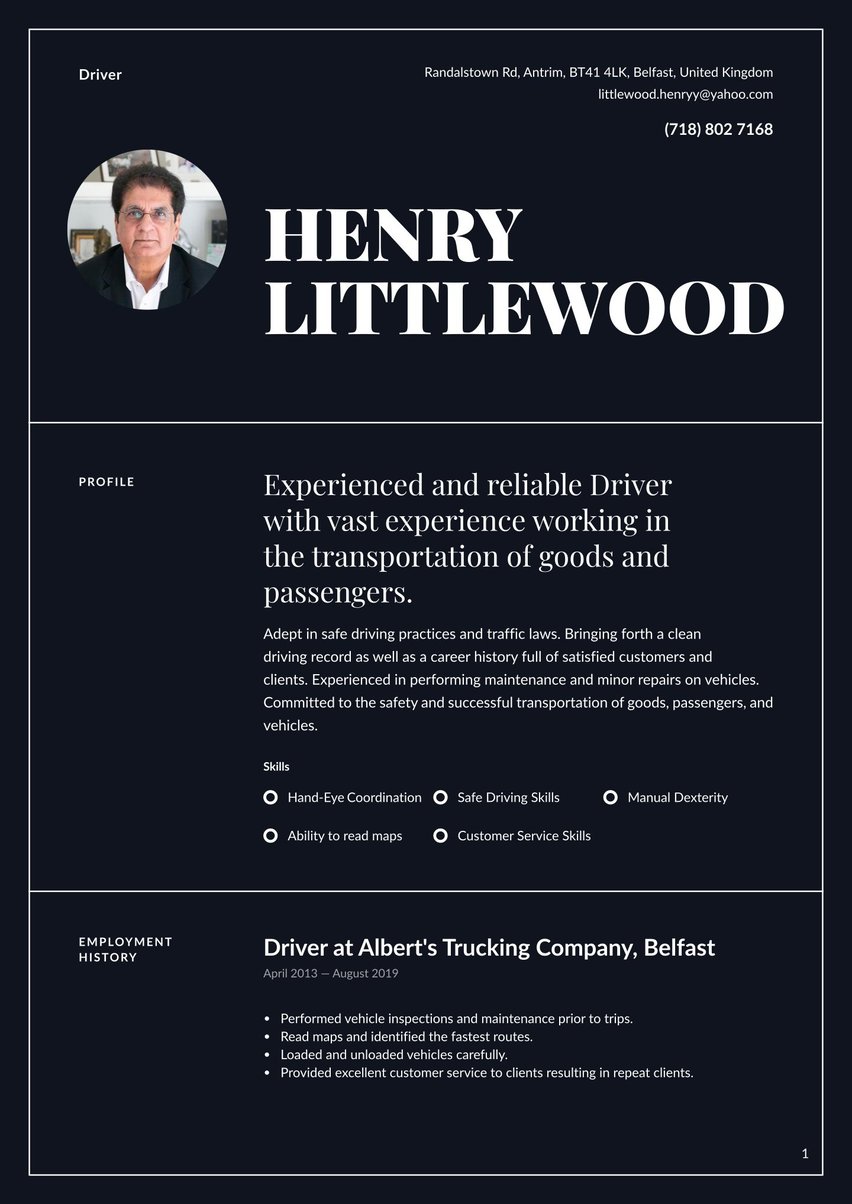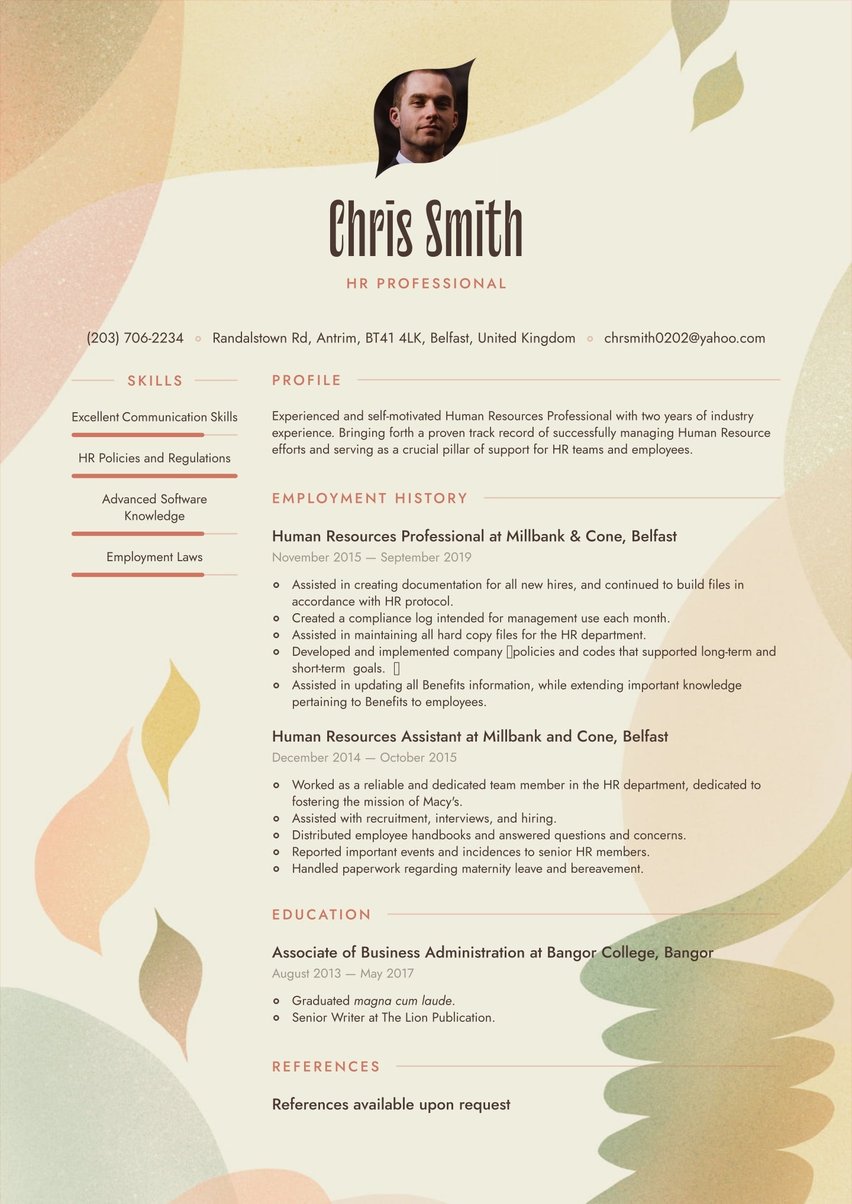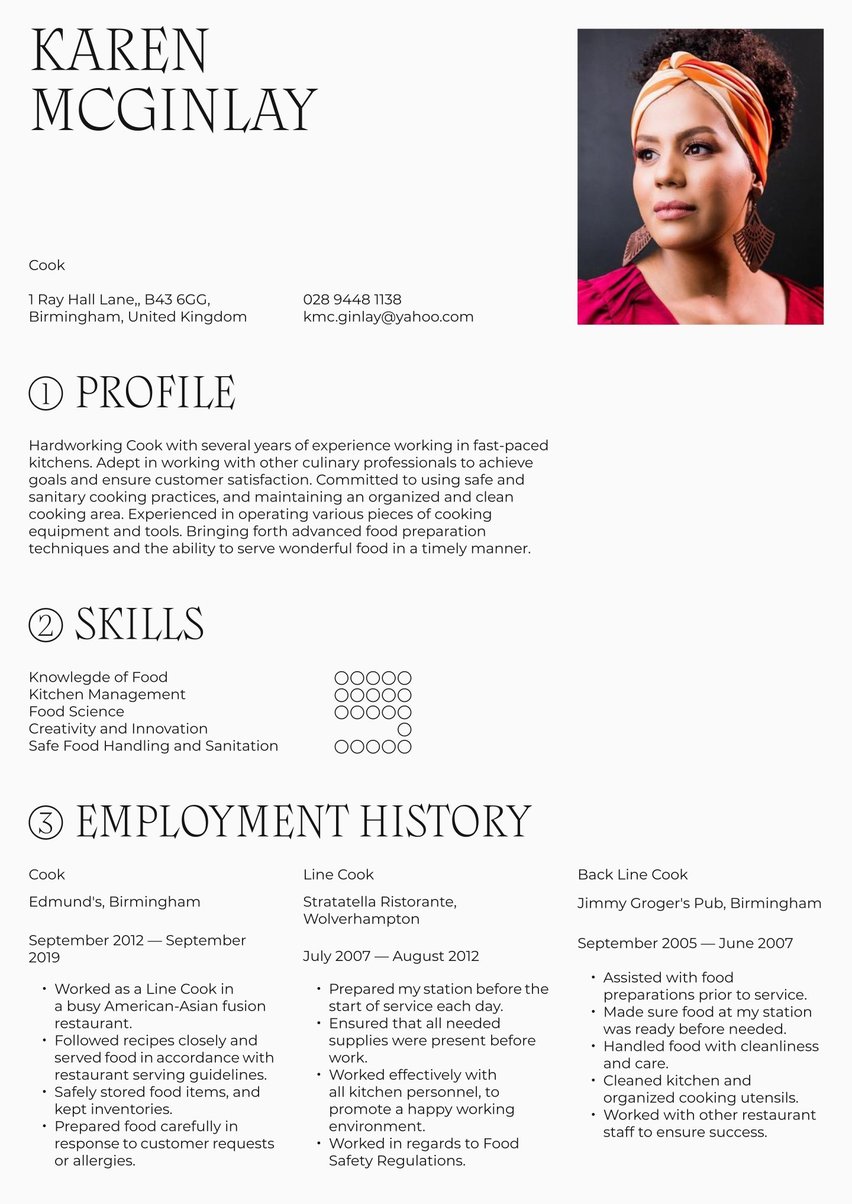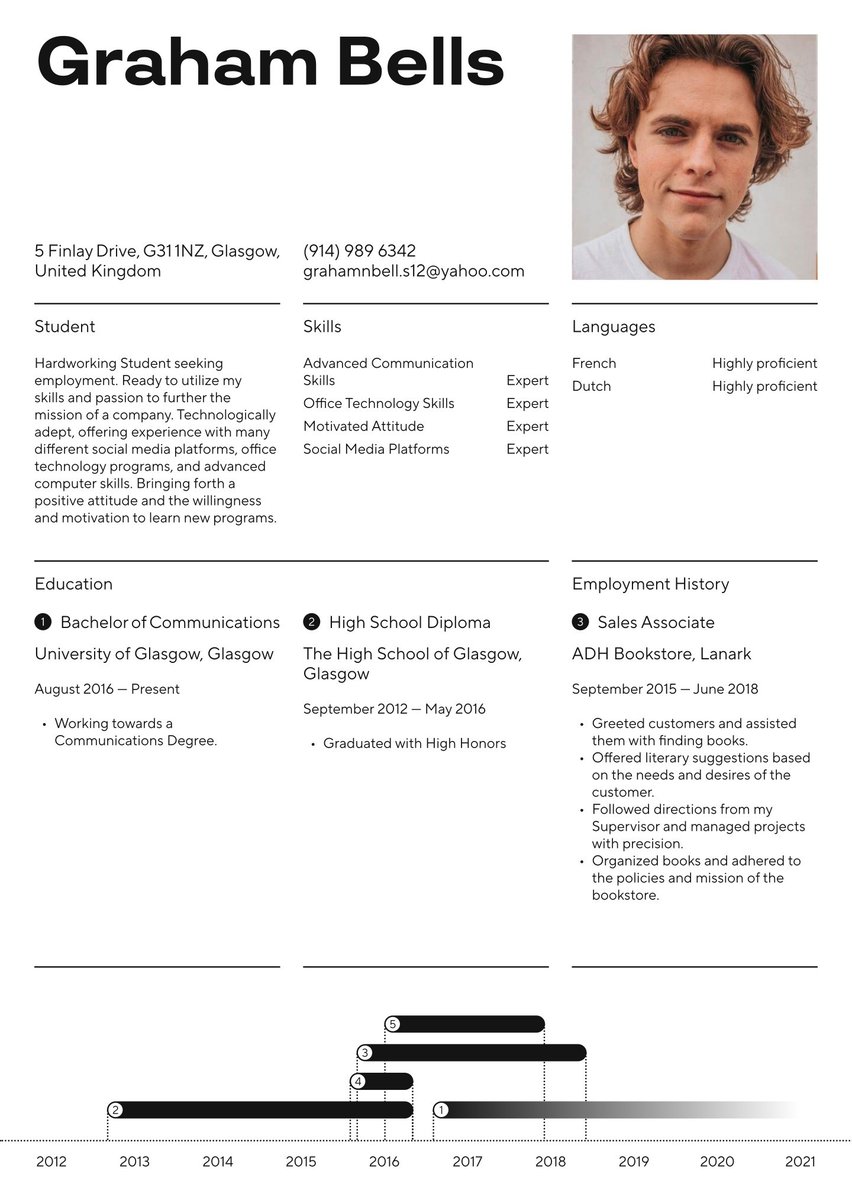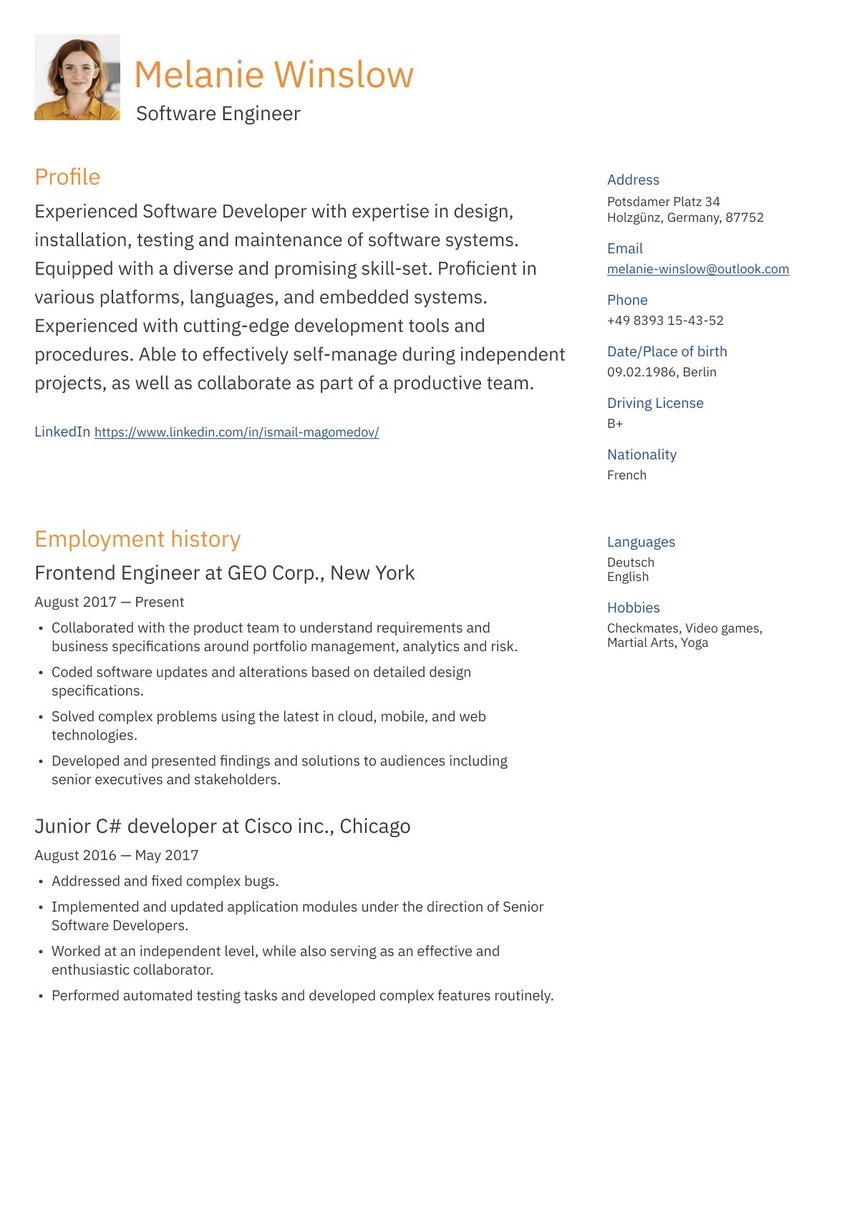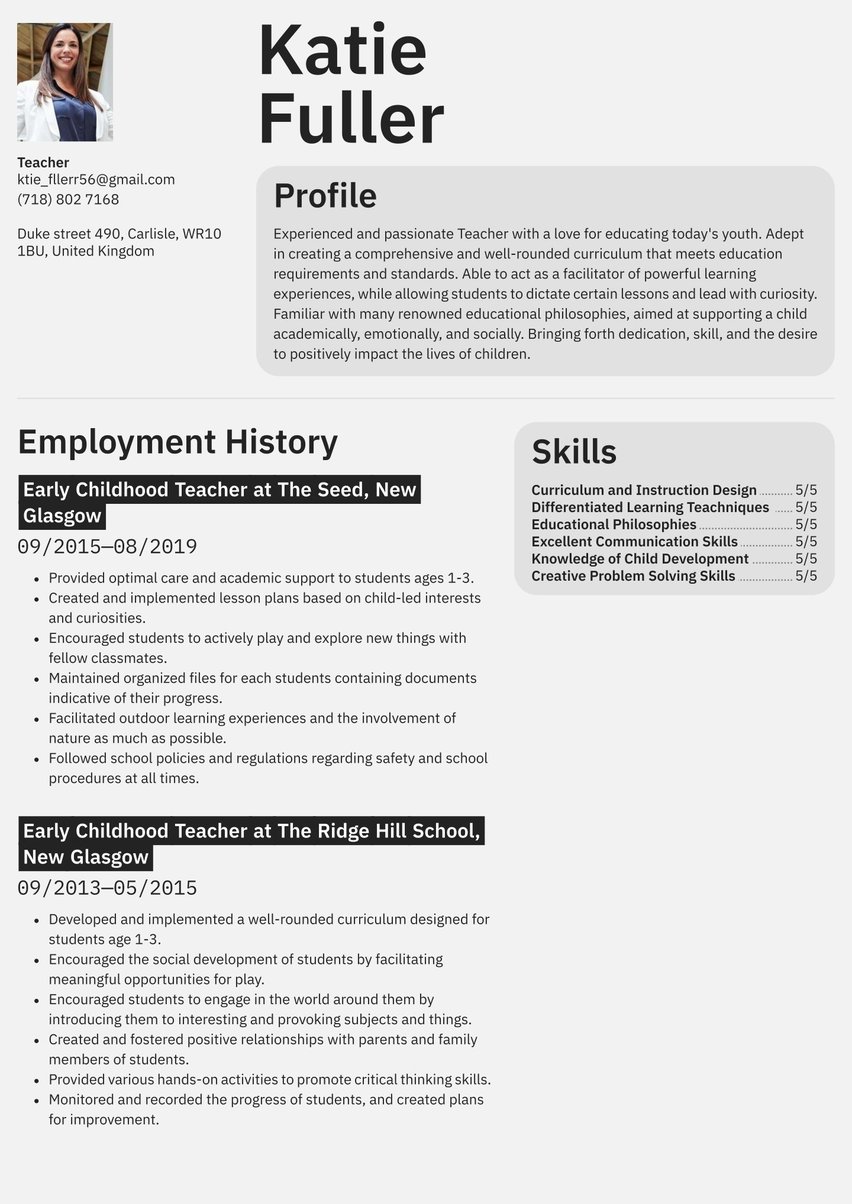Accomplished College Professor with over 10 years of experience in delivering engaging lectures and fostering student success. Specialised in English Literature with a strong research background and a track record of publishing in peer-reviewed journals. Committed to creating an inclusive learning environment and mentoring students.
09/2016 - present, Anglia Ruskin University, Senior Lecturer in English Literature, Cambridge
- Develop and deliver lectures, seminars, and tutorials for undergraduate and postgraduate courses
- Supervise undergraduate and postgraduate research projects and dissertations
- Conduct research in the field of 20th-century British literature, resulting in 5 published articles in peer-reviewed journals
- Serve on the department's Research Committee and contribute to curriculum development
- Mentor junior faculty and provide guidance on teaching and research
08/2011 - 08/2016, Lecturer in English Literature, University of East Anglia, Norwich
- Taught a range of undergraduate courses in English Literature, focusing on 19th and 20th-century novels
- Supervised undergraduate dissertations and provided academic support to students
- Conducted research on the works of Virginia Woolf, resulting in a monograph published by Routledge
- Participated in departmental meetings and served on the Teaching and Learning Committee
09/2008 - 06/2011, PhD in English Literature, University of Cambridge, Cambridge
09/2005 - 06/2007, Master of Arts (MA) in English Literature, University of Oxford, Oxford
09/2002 - 06/2005, Bachelor of Arts (BA) in English Literature, University of Bristol, Bristol
Research Interests
- 20th-century British literature
- Modernist fiction
- The works of Virginia Woolf and her contemporaries
- Excellent written and verbal communication skills
- Strong research and analytical skills
- Proficient in Microsoft Office
- Reference management software
- Experienced in using virtual learning environments
Your CV as a university lecturer is emblematic of your ability to understand and present information as concisely as possible. After all of your extensive studies and research, it’s your tool to present your experience in a way that’s guaranteed to impress.
But how can you make sure your CV gets top marks? What information will help you stand out among other applicants?
The answer to these questions lies in mastering the science behind CV writing. While you may be an expert in your field, a good lecturer knows that you’ll never truly be finished learning. So, put your thinking cap and reading glasses on because this is a study session that could help you land your dream job.
CV guide for a lecturer CV
Get your CV on track for success with our guides and CV examples that span over 500 professions, and our CV builder to take the pressure off creating a CV that’s bound to make the best first impression.
This CV guide and corresponding lecturer CV example will cover the following:
- How to write a lecturer CV
- Choosing the right CV format for a lecturer
- How to add your contact information
- Using summaries
- Adding your lecturer experience
- Listing education and relevant experience
- Picking the right CV design/layout
- What the lecturer market looks like and what salary you can expect
How to write a lecturer CV
The very first step in writing your lecturer CV is understanding what sections to include. Your CV should contain the following elements:
- CV header
- CV summary (aka profile or personal statement)
- Employment history section
- CV skills section
- Education section
When writing your CV, it’s important to keep your target audience in mind. While the hiring managers who look at your application may also be academics, like you, that also means they have a whole host of other responsibilities they need to juggle.
In practice, that means ensuring your CV content ticks the boxes they’re going to be scanning for. The easier you make this part of their job, the more likely they are to take a closer look at the finer details of your application.
Take your time to identify what each institution you apply to is looking for in a candidate and finesse your CV accordingly. Different employers will have different needs, even if the job remains the same and you’ll give yourself the best chance at landing a position if you approach every application you submit with that understanding.
Before you start putting your personal spin on each section, have a look at some of our tips to give your CV a strong foundation:
- Your academic achievements are going to be what help you stand out to employers rather than your daily duties. So be sure to shine a light on them throughout your CV content.
- Adjust your CV content according to the institution you’re applying to. Every institute of higher education will pride itself on the values and reputation it has which serve to attract students and staff alike.
- A CV for an academic does not need to be stuffy. Your content and layout should be refreshing to read in order to stand out.
- Don’t let ATS software prevent your application from landing in the hiring manager’s pile of potential candidates. Make sure keywords from the job description make it into your CV content.
Impress the ATS
To avoid getting inundated with applications, many employers make use of ATS, otherwise known as Applicant Tracking Systems.
The ATS softwares scans job applications for keywords. These keywords are usually present in the job description. If you don’t include these keywords, your CV likely won’t make it past the screening phase.
So remember to adjust your CV for every job you apply to, including those all-important keywords.
Choosing the right CV format for a lecturer
For most lecturers, the best format is reverse chronological. This format will focus on your employment section, which should also be listed in reverse chronological format, and will detail your academic career up until now.
If you don’t have much traditional work experience to speak about and have been in full-time studies, then you can consider a functional CV format. This format will focus on your skills and education section.
While many institutions will value hearing about any relevant work experience you have outside of the academic field, many lecturers will have an extensive education section of their CV. This can sit on CVs that follow the reverse chronological format or the functional format.
Don’t spend more time than necessary making this decision. If you’re finding it hard to choose a format, take a look at the variety of options in our CV builder and pick whatever feels best for you.
Include your contact information
An impressive research profile is all well and good, but you won’t get the job application outcome you’re hoping for if an employer can’t get in touch with you. With that in mind, your CV’s header actually plays a huge role when it comes to getting a call about an interview.
Ensure your CV header is pulling its weight by making sure your contact information is easily accessible, professionally presented, and most importantly double-check that it’s error-free. Remember to include the following information:
- Full name & title. List your first and last name. Include the title of the role you are pursuing.
- Professional email address. You want to be taken seriously in academic circles, so refrain from using an unprofessional email address. Use a clean format like firstname.lastname@gmail.com.
- Phone number. List a number where employers can get in touch with you easily, and make sure you have a professional voicemail greeting.
- Location. Only list your city. Listing your full address is no longer standard practice. Note 'Willing to Relocate' here if applicable.
- LinkedIn. Include your LinkedIn profile if you feel it could be relevant and you’re an active user.
Don’t include:
- Date of birth: This is not necessary and you could potentially face age discrimination if you choose to include it.
- Personal details: Your marital status, social security number, passport number, etc are sensitive information and should never be included on your CV.
Patricia Elms
Lecturer
07669762211
patricia.elms@email.com
Patricia Elms
Peruser of Academic Texts
07669762211
patty.e@email.com
Make use of a summary
Approach your CV summary in a similar way that you would your academic biography for the website of an institution. Communicate who you are, what you bring to the lecturing hall, and why you’re the right academic for the job. The trick is to keep it as brief as possible.
Some good rules of thumb for your CV summary include keeping it brief, with no more than two to three sentences. You should also make use of action verbs, written either in the present simple or past tense, that highlight your best qualities. For a lecturer, these could include verbs like “developed”, “earned”, or “influenced”.
Remember that universities aren’t just looking for employees. They’re looking for academics who can contribute to the university to boost its profile and attract more students. Some lecturers may even play a role in securing funding. Your summary, therefore, needs to epitomise your best selling points.
Present yourself as the worthy candidate they’re looking for. That means that your CV summary is no time for humility. A strong CV summary could help you land a role that will allow you to further your academic standing, so why would you sell yourself short?
Don’t worry if this is something you may need to practise a few times before you get really good at writing a CV that sells your top qualities. We’ve got some related CVs that could help you with the writing process! Some examples include our:
Take a look at some adaptable lecturer CV example summaries below for more inspiration:
Driven French Literature lecturer with 2 years of teaching experience in a university setting. Expert in crafting course modules and passionate about motivating students to achieve their academic objectives. PhD research and thesis about the representation of religion in pre-revolution French literature.
Experienced Mathematics Lecturer with over 5 years of teaching experience in a variety of higher learning institutions. Demonstrated talent for leading successful research projects among students. Experienced in supervising PhD projects.
Committed and knowledgeable Social Health Care Lecturer with 10+ years of teaching experience in a variety of learning institutions across the world. Dedicated to inspiring students to reach their academic aims and identifying their learning needs. Recently published journal articles in improving working conditions in non-medic clinicians.
Outline your lecturer work experience
When listing your work experience, you should start with your most recent job at the top and then work your way backward. This is true whether you are using the reverse chronological or the functional CV format.
If you’re an extremely experienced lecturer, only go back to the last 15 years to optimise your use of space. Each role that you have held should have its own subheading which includes:
- Your job title
- The name of the company or institution you worked at
- Your dates of employment
- The location of the position
Underneath this subheading, you can add several bullet points that outline your main achievements during your time in the role. Use dynamic action verbs to keep your writing concise and draw attention to your accomplishments.
When they’re used correctly, descriptive verbs are much better at communicating what you did than rambling sentences with lots of adjectives and not much substance.
The power of imagination
Employers sometimes need a helping hand in envisaging the kind of results you could help to implement as an employee at their institution. That’s why the bullet points underneath each job title in your work experience section can be so powerful. They help to push the mind of the hiring manager in the right direction!
Highlighting your strengths through clear bullet points will show employers that you’ve reflected on your professional achievements and recognise what sets you apart. After all, thinking is a big part of the academic world. A university department will only be as strong as the thinking facilitated by its lecturers, whether that’s through new research or the moulding of your students’ minds!
Ultimately, hiring decisions will be made in relation to which candidate can bring better results or reputation if they are hired. Make sure your accomplishments take pride of place in the work experience section of your CV.
However, as a lecturer your accomplishments and results could look very different depending on your field of expertise. For a clearer idea of what a lecturer’s employment history CV section could look like, take a look at the sample below:
Anglia Ruskin University at Senior Lecturer in English Literature, Cambridge
September 2016 - Present
- Develop and deliver lectures, seminars, and tutorials for undergraduate and postgraduate courses
- Supervise undergraduate and postgraduate research projects and dissertations
- Conduct research in the field of 20th-century British literature, resulting in 5 published articles in peer-reviewed journals
- Serve on the department's Research Committee and contribute to curriculum development
- Mentor junior faculty and provide guidance on teaching and research
Lecturer in English Literature at University of East Anglia, Norwich
August 2011 - August 2016
- Taught a range of undergraduate courses in English Literature, focusing on 19th and 20th-century novels
- Supervised undergraduate dissertations and provided academic support to students
- Conducted research on the works of Virginia Woolf, resulting in a monograph published by Routledge
- Participated in departmental meetings and served on the Teaching and Learning Committee
Include the relevant key skills that make you a great lecturer
There’s so much that goes into being a great lecturer. Your daily duties span a whole range of different tasks, which all demand a variety of hard and soft skills. Both are key skills and it’s important to make sure that there’s a good balance of both.
Think of your hard skills are the training and qualifications you hold. Soft skills are more difficult to teach. You have likely honed them over time and they will separate you from other applicants.
Let’s break down some skills you could include in your skills section:
- Time management. There will likely be deadlines to take into consideration in terms of organising your time and finishing tasks like marking student essays, assignments, or exams.
- IT skills. Most of a student’s work will be submitted online, so you’ll need to be familiar with or ready to learn the relevant software or online portal used.
- Flexibility. You may need to adjust your teaching method for the topic at hand or the students you’re teaching.
- Enthusiasm. Don’t take this skill for granted. Employers will want lecturers who are genuinely passionate about their subjects so that they can share that passion with their students.
You will only have so much space in your CV, so try to be selective when deciding which skills should make the cut. Take a closer look at the job description and even the institution’s website in order to determine which will be the most relevant.
Remember, it’s not about how important you think your skills are. It’s about what will be the most useful for the role that you’re applying for. To help you get started on this section, you can check out some of the pre-written skills in our CV builder.
We’ve provided an example of what the skills box looks below in our lecturer CV example below.
- Excellent written and verbal communication skills
- Strong research and analytical skills
- Proficient in Microsoft Office
- Reference management software
- Experienced in using virtual learning environments
Detail your education & relevant lecturer certifications
The education section is one of the most important sections for a lecturer. If it’s not well written, it could stand between you and landing your dream job. To write a strong education section, consider focusing on the relevance of your qualifications and how to make this clear to the reader.
Once again, list your academic achievements in reverse chronological order. Only go as far back as your undergraduate degree to save space. Remember to include a subheading for each qualification. Each one should include the qualification name, the institution where you studied, your dates of attendance, and the location.
As education is central to working as a lecturer, you can consider adding bullet points underneath the higher education degrees and qualifications that you want to expand on. Information that you may choose to include here could include:
- Published academic work
- Your thesis title
- Teaching experience carried out as part of the qualification
- Any awards or accolades you collected as part of your academic work
A published professor
If your research, or research that you contributed to, has been published in academic journals then that’s worth sharing. You can choose to include this in the bullet points underneath the relevant qualification or work experience entry.
Alternatively, you can add a separate section for your published work if there are enough relevant papers to create a list.
Check that your education section is ready to go by having a look at the CV sample content below.
PhD in English Literature, University of Cambridge, Cambridge
September 2008 - June 2011
Master of Arts (MA) in English Literature, University of Oxford, Oxford
September 2005 - June 2007
Bachelor of Arts (BA) in English Literature, University of Bristol, Bristol
September 2002 - June 2005
Research Interests
- 20th-century British literature
- Modernist fiction
- The works of Virginia Woolf and her contemporaries
Pick the right CV layout and design for a lecturer CV
How you present information is just as important as the information itself. Anyone who’s marked a poorly presented student essay knows that much. The same goes for when writing a CV for a lecturer. Employers will not waste time on a candidate whose CV is hard to navigate.
For a lecturer, your CV should have a professional layout. A few splashes of colour is acceptable. However, if you are applying to work at a particularly conservative institution, then you might prefer to choose a monochrome design instead.
When it comes to your CV’s font, a maximum of two fonts throughout your CV is a good rule of thumb. Keep it legible and don’t go too small with your font size. It may be tempting to cram as much as possible into your CV, but readability should always be your main priority.
Crafting the perfect CV doesn’t have to be as difficult as it may sound. We know that you dedicated your time to mastering other skills and becoming an expert in your field. So if you prefer to outsource the design aspect of your CV writing, our field-tested CV templates could help. That way you can get back to teaching as quickly as possible!
Lecturer text-only CV example
Profile
Accomplished College Professor with over 10 years of experience in delivering engaging lectures and fostering student success. Specialised in English Literature with a strong research background and a track record of publishing in peer-reviewed journals. Committed to creating an inclusive learning environment and mentoring students.
Employment history
Anglia Ruskin University at Senior Lecturer in English Literature, Cambridge
September 2016 - Present
- Develop and deliver lectures, seminars, and tutorials for undergraduate and postgraduate courses
- Supervise undergraduate and postgraduate research projects and dissertations
- Conduct research in the field of 20th-century British literature, resulting in 5 published articles in peer-reviewed journals
- Serve on the department's Research Committee and contribute to curriculum development
- Mentor junior faculty and provide guidance on teaching and research
Lecturer in English Literature at University of East Anglia, Norwich
August 2011 - August 2016
- Taught a range of undergraduate courses in English Literature, focusing on 19th and 20th-century novels
- Supervised undergraduate dissertations and provided academic support to students
- Conducted research on the works of Virginia Woolf, resulting in a monograph published by Routledge
- Participated in departmental meetings and served on the Teaching and Learning Committee
Skills
- Excellent written and verbal communication skills
- Strong research and analytical skills
- Proficient in Microsoft Office
- Reference management software
- Experienced in using virtual learning environments
Education
PhD in English Literature, University of Cambridge, Cambridge
September 2008 - June 2011
Master of Arts (MA) in English Literature, University of Oxford, Oxford
September 2005 - June 2007
Bachelor of Arts (BA) in English Literature, University of Bristol, Bristol
September 2002 - June 2005
Research Interests
- 20th-century British literature
- Modernist fiction
- The works of Virginia Woolf and her contemporaries
Lecturer job market and outlook
Though many lecturers in the UK may have to accept part-time or fixed-term contracts before landing a full-time position, there are plenty of opportunities for growth once you start working in an institution for higher education. These are normally tied to your continued dedication to having an active research profile and accepting to take on more responsibility.
According to the 2021/2022 Higher Education Staff Statistics, one in three academic staff were working on fixed-term contracts. A total of 62,730 staff are employed on atypical contracts.
A permanent role isn’t necessarily impossible, but competition is sure to be fierce. That means your CV needs to stand out from the rest!
What type of salary you can expect as a lecturer
A higher education lecturer in the UK can expect to make between £33,000 - £55,000 per year. This amount would be reflective of a working week of 36 to 38 hours. Salaries may vary depending on experience and which institution you choose to work at.
Key takeaways for building a lecturer CV
Your lecturer's CV is one of the most important ways to capture an employer's attention and get them to take a closer look at your application. It may start with your CV summary, but make sure your work experience and education sections take pride of place. You can complement this with a skills list that is well-balanced with a variety of soft and hard skills.
Remember, if you’re in doubt about how to format, design, or even write your lecturer CV then our online CV builder is there to make your CV-crafting experience as stress-free as possible.

